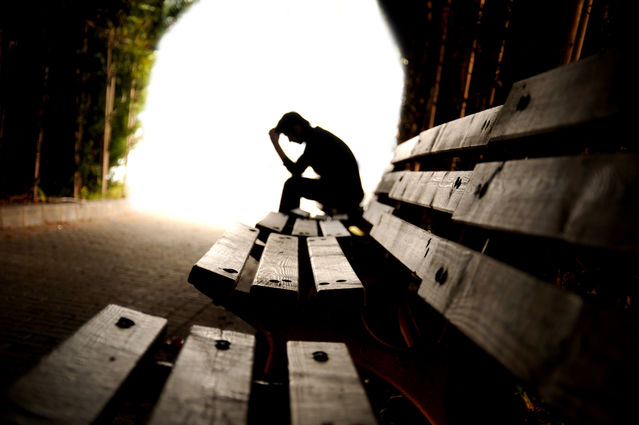
Optimism
The Optimism Challenge Conclusion
How to learn from intentional optimism.
Updated August 10, 2023
Thanks to everyone who participated in this 90-day journey of purposeful optimism. Reflecting on this period to see what has come out of this journey. Optimism, to me, does not mean looking at the world through rose-colored glasses or downplaying the very real forces of destruction and hatred in the world. It does not mean embracing the "pick yourself up by the bootstraps" philosophy of libertarianism and the prosperity gospel. Optimism does not mean engaging in fantastical thinking, of the sort that wishes away problems and challenges. To me, optimism means claiming the power that we already have to change our personal lives and the world around us.
Philosophers like to engage in speculation on unsolvable problems. These controversies can last for centuries if not millennia. One of these protracted problems is the discussion of free will versus determinism. Proponents of free will believe that the human being has near complete freedom to shape his or her life and that environmental and genetic factors play a very small role or no role in the fate of each individual. The proponent of free will must also downplay the role of social forces: if one believes in radical free will, it shouldn't matter what class, gender, ethnicity, race, and so forth a person inhabits at birth. Free will should be able to overcome any limitation.

This is where we get to the cruel side of some optimistic thinking and the cruel side of belief in free will. Under the rubric of free will, whatever problems you have, they are your own fault. If we believe in this maximal concept of free will, historical oppression and individual circumstances simply do not matter. And of course, believing in maximal free will also requires disbelieving in giant mounds of sociological evidence that race, class, gender, etc., really do determine a great deal about who we become as adults. Privilege, of any sort, is a real factor that is passed down from generation to generation that handily accounts for most of the inequality that we see in the world today.
There are different varieties of determinism. Some emphasize biology, others emphasize social location, still, others will even go into the laws of physics. The determinist will say that we are conditioned by the environment into which we are born. Our parents, our nation, our religion, our social class, and myriad other factors make us who we are. We can no more escape these forces than a grain of sand on the beach can escape from the wind and waves. Each and everything about our personalities, our well-being, and our wealth, comes to us from larger social forces.
I said that this debate between free will and determinism is intractable, and it has its parallel in debates about "nature versus nurture" in psychology and the life sciences. Suffice it to say here that both sides have part of the picture. We do, indeed, have a biological and cultural inheritance, and we also have some freedom of expression to make of ourselves what we will. Our freedom of will is not unlimited, but it can be a powerful factor in what we make of our lives.
Just to illustrate why freedom of will is not unlimited, we need only look to Marvel superheroes. If I had unlimited freedom of will, I would definitely be able to fly like Superman, without the aid of a Boeing 747. If I had absolute freedom of will, I could forsake this human form altogether and exist as a vapor, needing no food or water. I could travel to distant galaxies in the blink of an eye or survey the whole universe at a glance. In other words, I would be nothing less than God. But that kind of freedom is not available to me, or perhaps it is available in the imagination alone.
My freedom of will is much more limited than in superhero fantasy. I can choose whether to turn left or right at the stoplight. I can choose how to interact with my family and friends. I can choose the letters and words that stream out of my keyboard as I write this post. Now some philosophers will argue that I can't prove that I have even this limited sort of freedom. I will agree that I can't prove that I have this sort of freedom: I could be determined even as I write this by the factors listed above. But at a certain point, belief in determinism becomes absurd, and the burden of proof lies on those who would say that I am determined by whether I type x or y on the keyboard.
To bring this back to the discussion of optimism, I would say that optimism is about learning to make the most of the limited freedom of will that we do have. Free will should be treated as a valuable resource that is not to be squandered. Given that I do not have superpowers, I must make use of the normal human powers that I do have. And, as it turns out, the normal human powers are quite fantastic. I can express myself in words. I can run and cycle and swim. I can play musical instruments, study new languages, and read books on philosophy, history, and anything else that I like.
There are myriad avenues of self-expression available to us at relatively low cost to improve our lives and the lives of those around us. If I did not have a single dollar in my pocket right now, I could go down to the public library and read a book. I could make up a new song or draw a picture. The real enemy here is not a lack of resources: it is despair. I can do all of these things if and only if I believe in the opportunities available to me. Now we are getting to the crux of why optimism is necessary: doubt and despair rob us of the limited resources that we do have.
If you are reading these Psychology Today blogs, you are probably already aware that depression and anxiety are paralyzing illnesses that affect people from all economic backgrounds. According to this study reported in Scientific American, depression in the United States accounts for $210 billion worth of economic damage per year, only a small part of which is related to the cost of treatment. I don't give a fig about the bottom line of major corporations, but I do care about the human cost of this tragedy. I do care about the people who, right now, are lying on the couch because they are disabled by depression.
Now optimism will not, by itself, solve a mental health crisis. People with mental illness should, by all means, seek professional help and get a prescription if necessary. I think that optimism does have a sort of preventative value if it is embraced early enough and strongly enough. Positive thinking does not cure everything: it is not magical. But, by embracing an optimistic point of view, on purpose, of my own volition, I avoid some of the worst consequences of a despairing outlook.
At first, I will have to embrace optimism against all contrary evidence. My dark cast of mind sees only gloom all around, but I fight against my own constitution. I would like to curl into a ball and surrender to despair, but, through force of will, I give myself reasons to go on living. Optimism is the power to live, summoned out of thin air. It is an expression of the will to live, and, in this sense, it is necessary for earthbound mortals. As I will believe that life is worth living, I gradually begin to find confirming instances that feed my newfound faith. It gradually becomes easier to inhabit the optimistic frame of mind.
I hope that adequately summarizes the point behind this 90-day challenge. Feel free to repeat as often as necessary. For some of us, the struggle to be optimistic is a difficult one, and it is not mastered all at once. Rather, it begins each and every day as we go about our business. It is an attitude that must be nurtured quite deliberately, and it must begin again after each minor or major setback. Each new situation is a new opportunity to begin again, to develop that more positive frame of mind that enables the belief that life is worth living.



